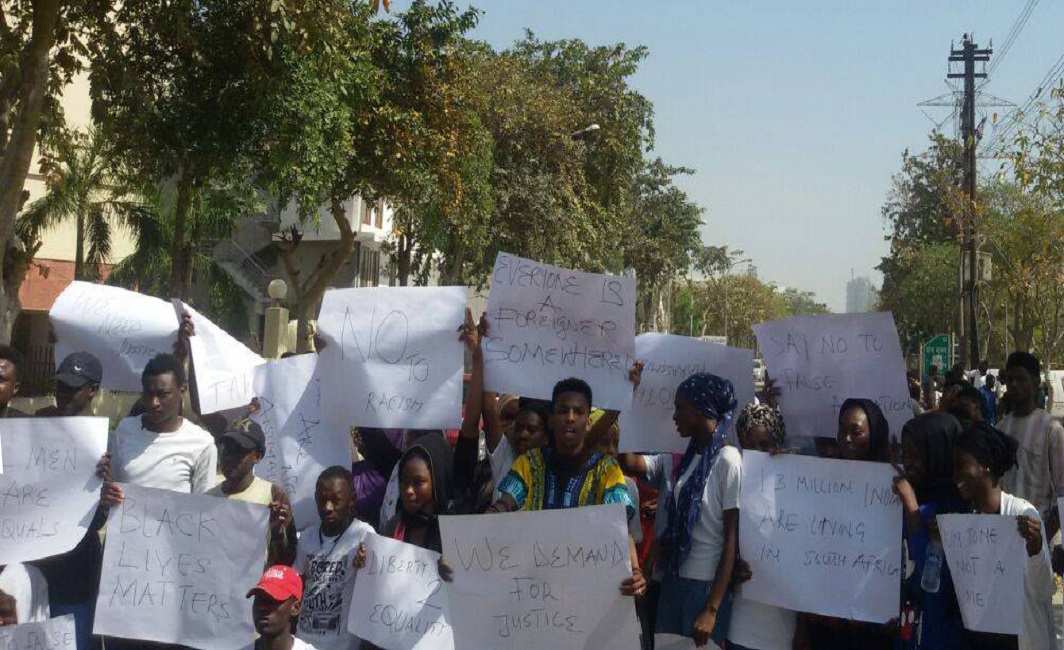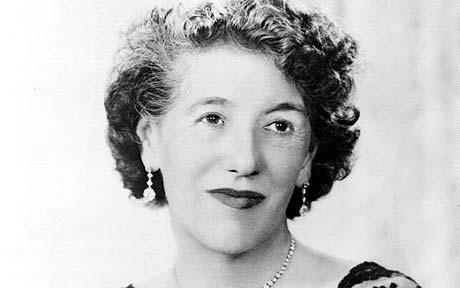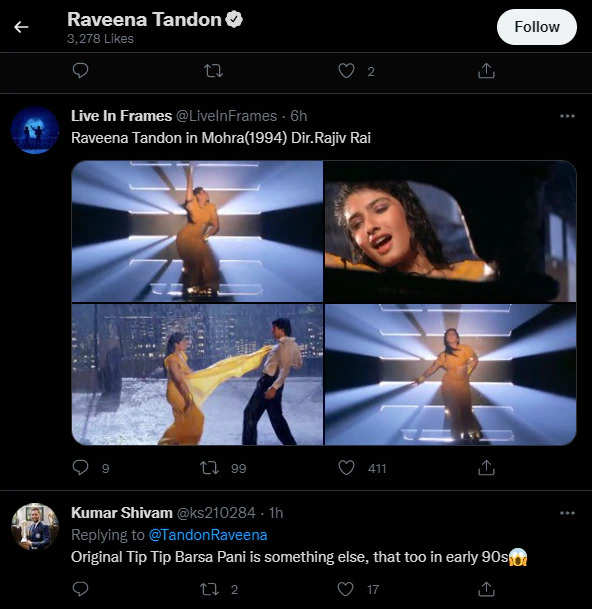News Story
When racist Indians cry foul

Featured
Ensure nutrition supplement ad wins hearts, Tweeple say video taught them a lot | WATCH
In this era of ads where some advertisements are really praised for their inclusivity while the others are being criticised, Ensure (an American brand of nutritional supplements) have also come up with a very heart touching advertisement in this festive season.
Bollywood news
Tip Tip Barsa Paani: Raveena Tandon or Katrina Kaif? Mohra star likes tweets hailing original song
Apart from the movie’s plot, Sooryavanshi is ruling the hearts of the audience with its peppy songs. Recently, the makers have dropped the remake of the iconic 90s song Tip Tip Barsa Paani that has been recreated by Katrina and Akshay.
Cinema news & gossip
Bheemla Nayak’s latest song out: Pawan Kalyan’s new power look in the lungi
Finally the wait is over, after a long time this new song Lala Bheemla has been released today. It is debuted by the filmmakers of the upcoming film Bheemla Nayak, which stars superstar Pawan Kalyan.
-

 India News19 hours ago
India News19 hours agoMK Stalin predicts frequent PM Modi visits to Tamil Nadu before assembly election
-

 Latest world news18 hours ago
Latest world news18 hours agoIndia eyes Rs 8,000 crore mid-air refuelling aircraft deal as PM Modi begins Israel visit
-

 Latest world news4 hours ago
Latest world news4 hours agoPM Modi reaffirms support for Israel, recalls 26/11 victims in Knesset address
-

 Latest world news4 hours ago
Latest world news4 hours agoCanada softens stance on alleged Indian interference ahead of PM Carney’s India visit
-

 India News4 hours ago
India News4 hours agoPM Modi crosses 100 million followers on Instagram, first world leader to achieve milestone
-

 Latest world news4 hours ago
Latest world news4 hours agoPM Modi and Netanyahu pledge deeper defence, trade ties during Israel visit
-

 India News4 hours ago
India News4 hours agoOver 5,000 tribals join BJP in Assam’s Goalpara ahead of elections







